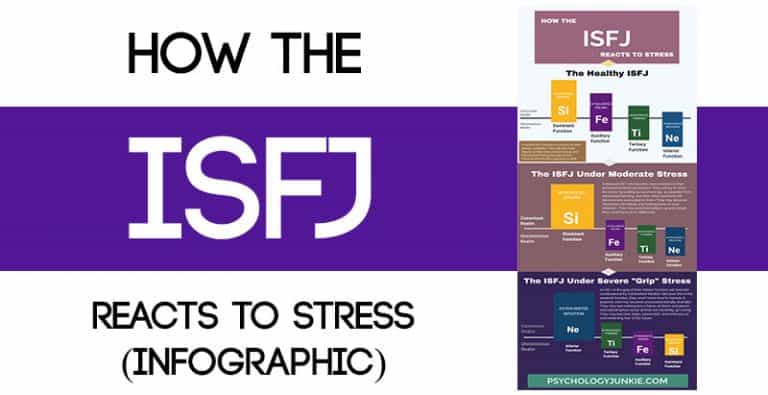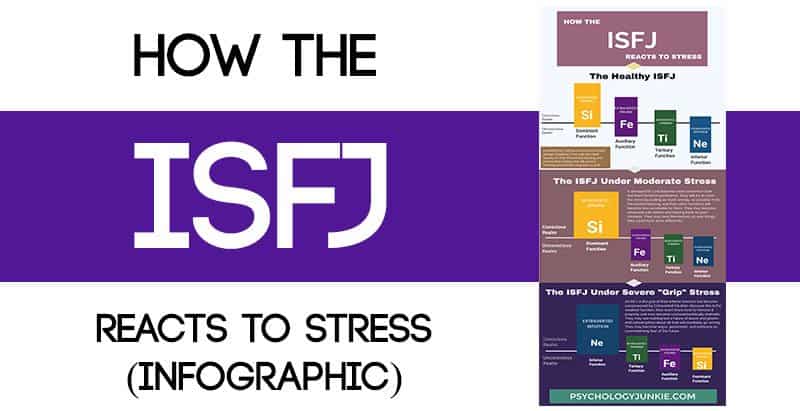The One Thing Every Myers-Briggs® Personality Type Finds Unbearable
While personality type can’t tell us everything about a person, it can shed light on some of the things that really get under our skin. Let’s take a look at some of the things that deeply offend each personality type. Does yours match you? Let me know!
Not sure what your personality type is? Take our new personality questionnaire here. Or you can take the official MBTI® here.

The ENFP – Rigidity
For the ENFP, life is to be explored. Diving into diverse perspectives, opportunities, and ideas is what gives them energy. Thanks to this exploratory approach, anyone who is rigid and narrow-minded drives them up the wall. This is especially the case if that rigidity is forced upon them. When they feel controlled, managed, and overlooked they absolutely despise that. If you love an ENFP, never put them on a leash. They need to feel free to explore, and they want you along for the journey if you’re one of their inner circle. People who try to reign them in will be on the receiving end of their ire (or neglect).
Related: What ENFPs Do When They Get Really Stressed Out
The ENTP – Willful Ignorance
For the ENTP, accuracy in all things is essential. When they come across people who blatantly disregard facts in order to continue believing in a hoax, tradition, or belief system it frustrates them to the core. Willful ignorance, or “confirmation bias” allows people to continue arguing or debating a problem by using logical fallacies, circular reasoning, or excuses. People who are willfully ignorant may argue endlessly against a cause yet simultaneously be unwilling to read, hear, or study the opposing view in any way. ENTPs, who live to seek truth (even if it makes them uncomfortable) are confounded by those who are willing to ignore facts in order to sustain an inaccurate belief.
Related: 10 Things You Should Never Say to an ENTP
The INFP – Hypocrisy
Authenticity and integrity are both powerful values of the INFP personality type. These types are constantly checking in with themselves to assess whether they are living in accordance with their personal ethics. Before speaking, taking an action, or making a decision they ask themselves “Is this really what I believe is right?”, “Am I being sincere here?”. Because they value sincerity to such a strong degree they are deeply offended by people who don’t “practice what they preach”.
Related: 10 Things You Should Never Say to an INFP
The INTP – Guilt Tripping
People who use emotional manipulation to get what they want rather than coming right out and asking for it are the bane of the INTPs existence. INTPs detest it when people use guilt as a way to get something. If there’s an actual reason for the INTP to feel guilty and someone confronts them with it that’s different. Using guilt to get emotional reassurance, a favor, or to gain the upper hand is one way to seriously jeopardize a relationship with an INTP.
Related: 10 Things You Should Never Say to an INTP
The ENFJ – Selfishness
ENFJs are firm believers in “The Golden Rule.” They are wired to think of the needs and concerns of others and they often put those needs before their own. As a result, they are deeply offended by selfishness and self-serving behavior. People who choose to look aside from the suffering people of the world and get wrapped up only in their own ambitions or comforts exasperate them.
Related: 10 Things You’ll Relate to if You’re an ENFJ
The ENTJ – Passive-Aggressiveness
People who pout, sulk, or emotionally “punish” their loved ones rather than directly admitting what is wrong infuriate ENTJs. ENTJs are all about being direct, cutting to the chase, and being honest. They believe that passive-aggressive behavior is not only a waste of their time but insulting to their desire to fix what’s wrong. If you’re ever upset with an ENTJ – tell them. Don’t give them the silent treatment or hide in a corner giving them dirty looks. If you need time to process what you’re upset about, simply tell them “I’m upset but I don’t know how to talk about it yet. I need some time.” Whatever you do, just tell them the truth.
The INFJ – Condescension
INFJs don’t only hate condescension when it’s directed at them – they hate it when it’s directed at anyone. There’s no better way to infuriate an INFJ than to talk down to someone, especially if the condescension is paired with generalizations or “blanket statements” that lack accurate data. Patronizing statements about broad groups of people (“lazy, entitled millennials” for example) anger INFJs who may find themselves defending a group of people they don’t even have a strong connection to simply because the condescension irritates them so much.
Related: 24 Revealing Quotes About the INFJ Personality Type
The INTJ – Assumptions
If you’re ever having a conversation with an INTJ, please, please do not interrupt them with what you anticipate they will say. Don’t make inferences about their character or jump to conclusions about what they can or cannot do. If they’ve spent a great deal of time listening to you, don’t cut them off mid-sentence with your opinion about what they are going to say (or think) and your corresponding argument with it. INTJs are hardly predictable people, but if someone show a habit of jumping to conclusions or making false assumptions they may just write them off and refrain from engaging with them at all.
Related: 3 Weird and Wonderful Secrets About the INTJ
The ESFP – Judgmental, Know-it-all Behavior
Self-righteous, superior behavior completely exasperates the ESFP. There’s nothing worse to them than someone who not only thinks they have all the answers but thinks they need to tell everyone else how to live their lives. It’s especially bad if the judgmental person labels other people. Labeling is something that ESFPs can’t stand – they believe everyone is a unique individual with many different facets and qualities that make them one-of-a-kind. People who take themselves too seriously or feel the need to judge others are usually too tiring for the ESFP to be around.
The ESTP – Being Underestimated
One of the worst things you can say to an ESTP is that they “can’t” do something or that you don’t trust them to get the job done right. ESTPs are skilled at troubleshooting and problem-solving in make-or-break situations where there is a lot of pressure to find a solution quickly. When they are underestimated or dismissed, especially when they are trying to help, this can provoke intense anger in them. They don’t offer to help with something unless they are confident they can do it.
The ISFP – Controlling Them
Everyone hates being controlled. Nothing new here. But for the ISFP, this is especially offensive, and control can fall into many categories. These types believe in marching to the beat of their own drum and exploring all the experiences life has to offer in order to find their most true, core identity. They need freedom. Anyone who tries to put them in a box, either metaphorically or (yikes) literally will be on the receiving end of their cold fury. This means don’t label them, don’t over-manage their time, and don’t make assumptions about their likes and dislikes.
As an example, I knew an ISFP teen who loved horror movies and their family made the assumption that she was deeply troubled and needed counseling because of it. Really, the ISFP just liked the overall aesthetic, the study of good versus evil, and the glimpse into what humanity is like at its darkest. It was more a psychological exploration than anything her family was thinking. But alas, she ended up in therapy because she preferred to chill out to “Haunting of Hill House” over the Disney Channel. ISFPs want to feel like the world is boundless and they can learn more about themselves through discovering many different experiences or stories along the way. Feeling controlled in that pursuit is deeply frustrating for them.
The ISTP – Being Teased About Something Personal
ISTPs are very reserved, private individuals who only share their deepest feelings and secrets with a select few. If someone takes those secrets and shares them or, worse, teases them about it publicly, they will probably have a hard time getting into the ISTP’s good graces ever again. If an ISTP tells you something personal it’s best to assume that it should never be shared with anyone else without their explicit permission.
Honorable mention: Another thing I’ve heard over and over again from ISTPs is they have being signed up for things! If you care about an ISTP please, please do not sign them up for things without asking them about it first. Especially if those “things” involve a lot of socializing!
The ESFJ – Trolling
ESFJs deeply dislike people who start an argument or upset others just to generate some excitement for themselves. To the (healthy) ESFJ, people’s feelings should always be handled with care. There is never an excuse to insult or tear down another human being or say inflammatory things just to get everyone riled up. As promoters of harmony and understanding, trolling types will find the ESFJ a formidable adversary.
The ESTJ – Disrespecting Their Time
ESTJs take their time very seriously. They believe that every moment should be put to good purpose and laziness is anathema to them. People who procrastinate, don’t show up on time, or cancel plans at the last minute are maddening to them. If you don’t respect their time then they will have a hard time believing that you respect them as a person.
The ISFJ – Rudeness
ISFJs are extremely attuned to the needs and comforts of the people around them. As such, they find people who are crass, overbearing, or self-seeking oppressive to be around. They believe that every person deserves to be treated with respect, tact, and empathy. They believe that each person deserves personal space and a peaceful environment. People who encroach on others, dismiss their values or cause a lot of drama just to get attention are incredibly vexing to ISFJs.
Related: 10 Things You’ll Relate to if You’re an ISFJ
The ISTJ – Breaking Your Word
ISTJs (at least the healthy ones) are people of their word. They believe in following through on their commitments and they have a great deal of respect for other people’s time. They are extremely offended by people who shirk plans, break promises, or are wishy-washy with their responsibilities. If you break a promise or a commitment with an ISTJ they will have a hard time taking you seriously again in the future. If you respect them, by all means, respect their time.
What Are Your Thoughts?
Do you agree with this article or have any other experiences or thoughts to add? Let us know in the comments!
Find out more about your personality type in our eBook, Discovering You: Unlocking the Power of Personality Type.
















There’s so much I find unbearable, I don’t know where to begin. But this article is a good start, thanks Susan.
You are spot on with your thoights on ISTJ’s !!
As an INTP I think a lot of these things would make me mad…rudeness (to myself or others), having my time wasted (by failure to volunteer critical information), trolling (a.k.a., picking fights), and especially being controlled or micromanaged. I suppose I’ve been in a few situations in which I was blamed and guilt-tripped (my “unbearable” thing in this article) for an honest mistake that could have happened to anyone, but not in the sense of being manipulated. Rather, I think what maddens me most is gaslighting or dismissiveness – the attitude that my values, priorities or approaches to problem-solving (e.g., start by gathering as much information as possible, and then do things correctly) don’t count. As for passive-aggressiveness, it seems there are different definitions of this floating around, as some seem to consider politeness out of a desire not to escalate a situation to be “passive-aggressive.”
This is a good article, but an an INTJ I have to disagree a little bit. For me, the one thing I find unbearable is when people waste time with small talk about things that just don’t matter. This bothers me much more than assumptions, which I can easily just write off without getting irritated about them.
As an INFP: Hypocrisy is something that would make me disrespect a person. but it doesn’t offend me personally. Knowing that people can’t live to their own standards is… sad. Sad but a human experience that exposes our weakness in the face of harsh reality. There is a range of hypocrites of course, some are simply weak, some delude themselves while others manipulate. But I can usually see through their motives.
I’d say the biggest kryptonite for me is having my inner knowledge/wisdom dismissed by some one-size-fits-all rule that brings everyone to the lowest common denominator of dumbness/incompetence/lack of self awareness. Direct attack on the mature Fi.
Actually, many of those things are very annoying (to name a few – rigidity, hypocricity), and yes, underestimating and making assumptions is infuriating, but an absolute TOP one is the one mentioned for ISTPs (publicly teasing them with something personal they told you). Doing that to an ESTP can get you seriously injured (no joke here).